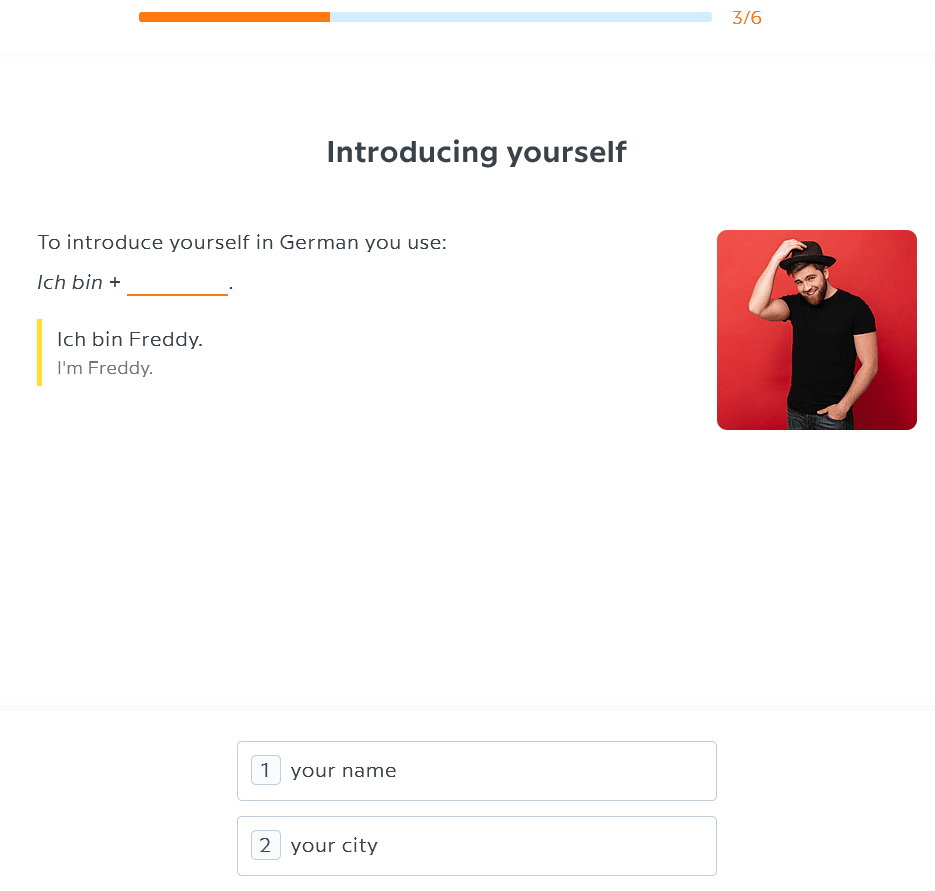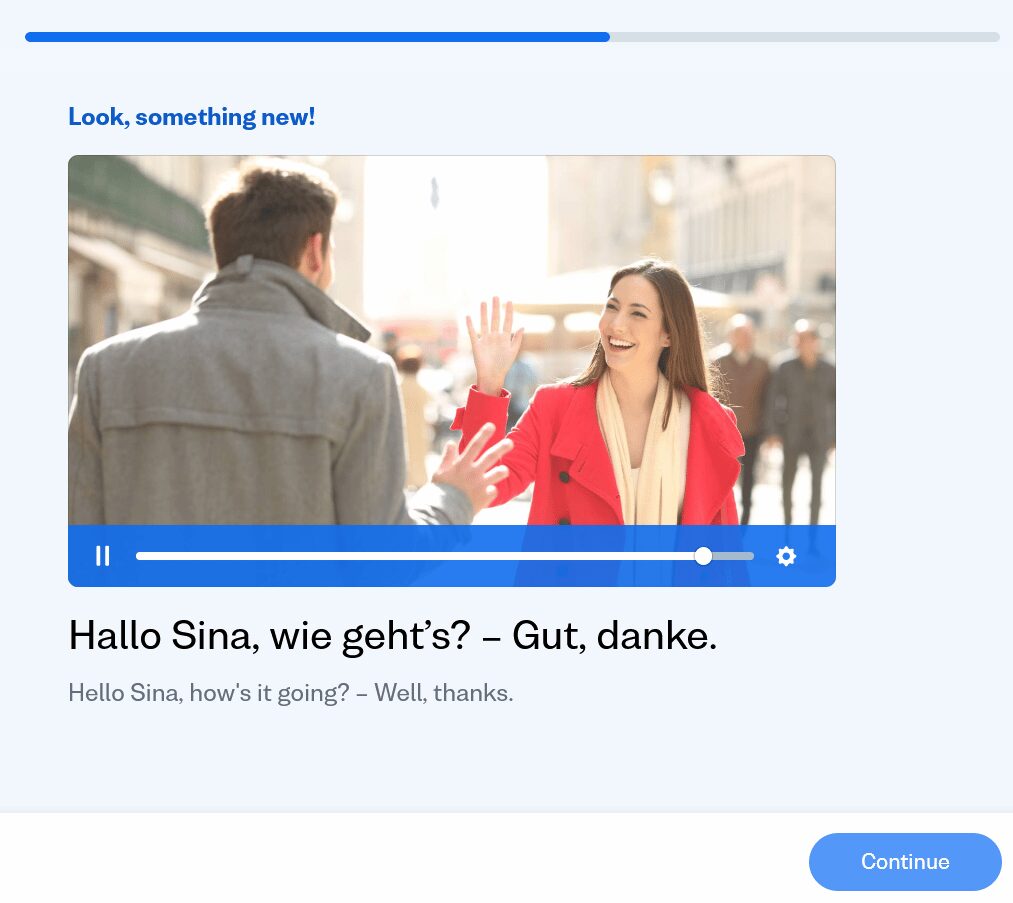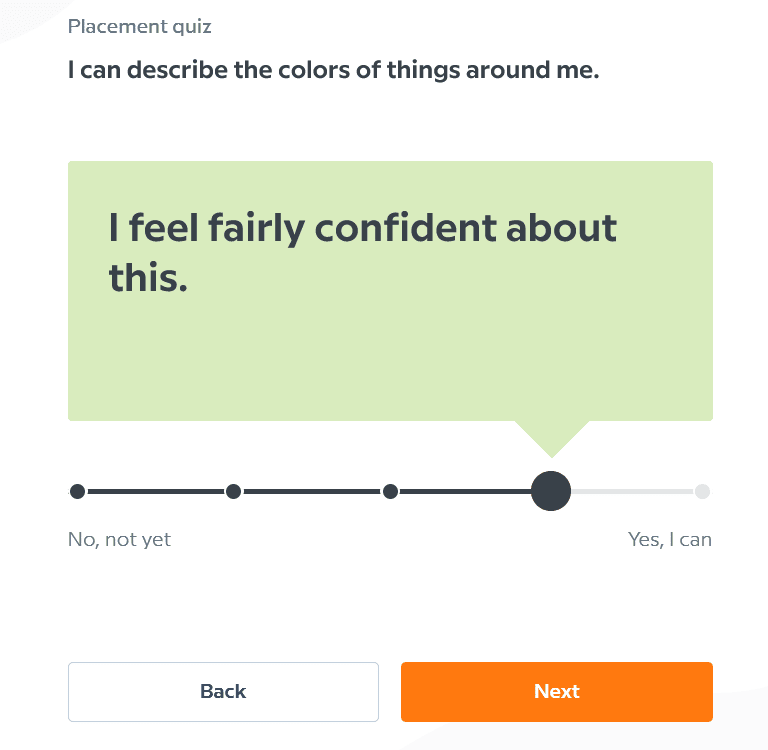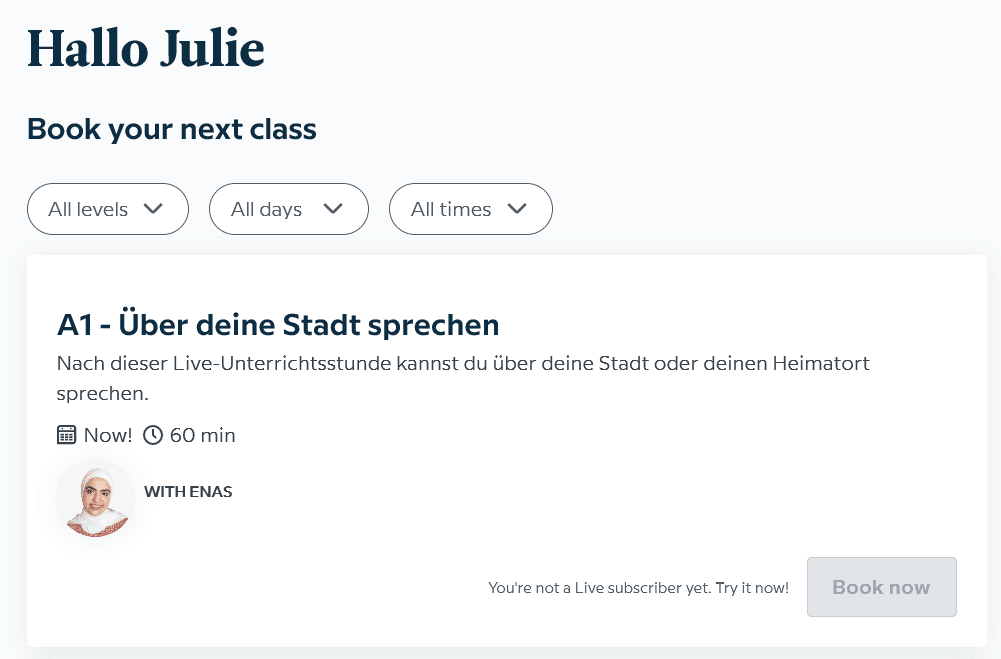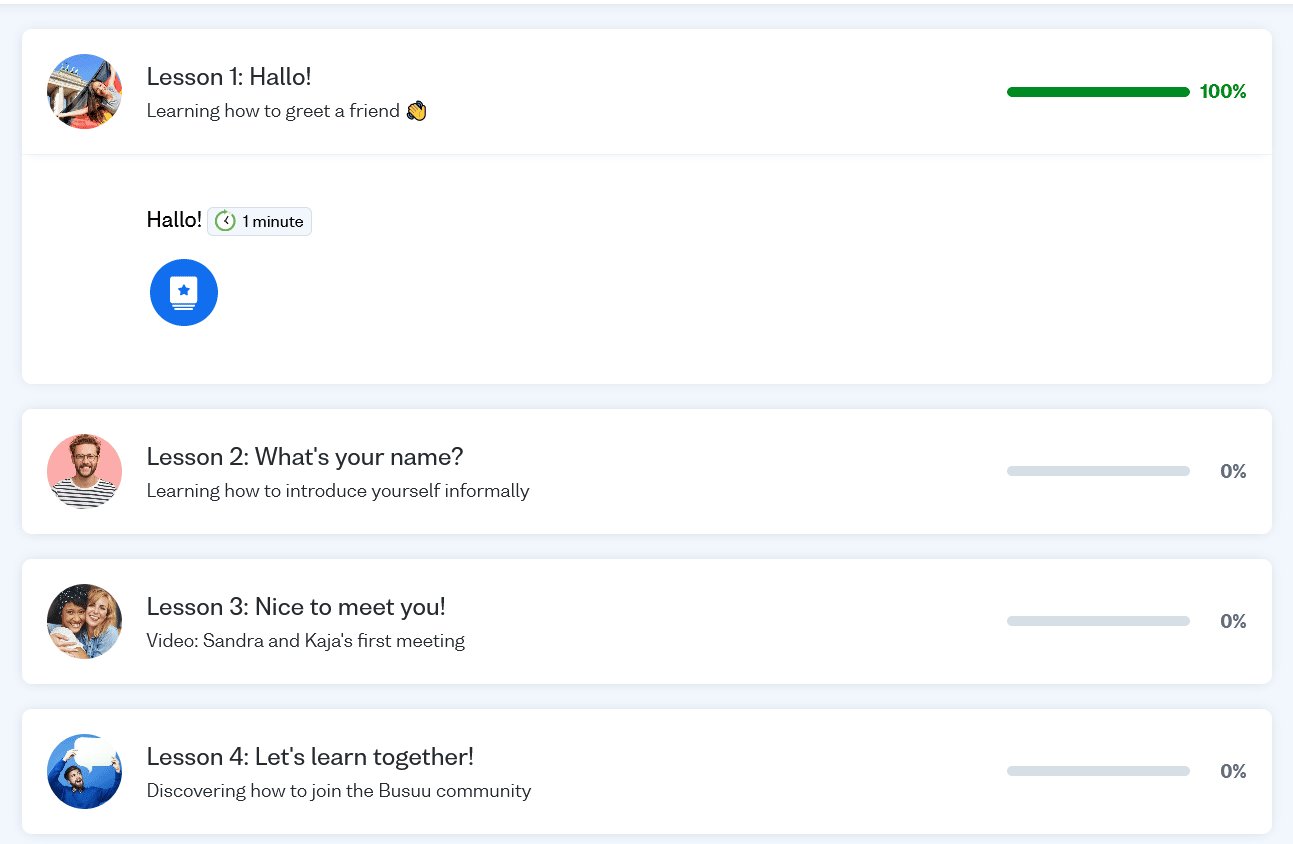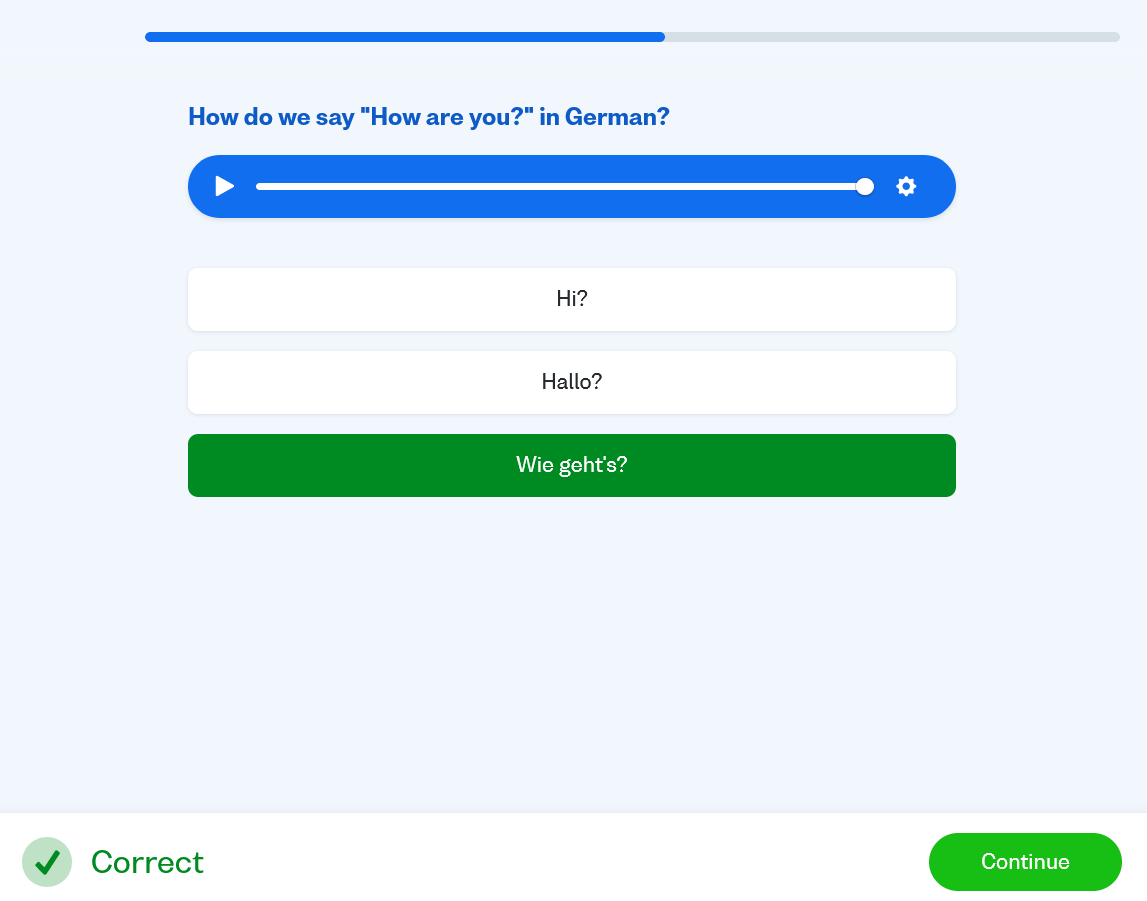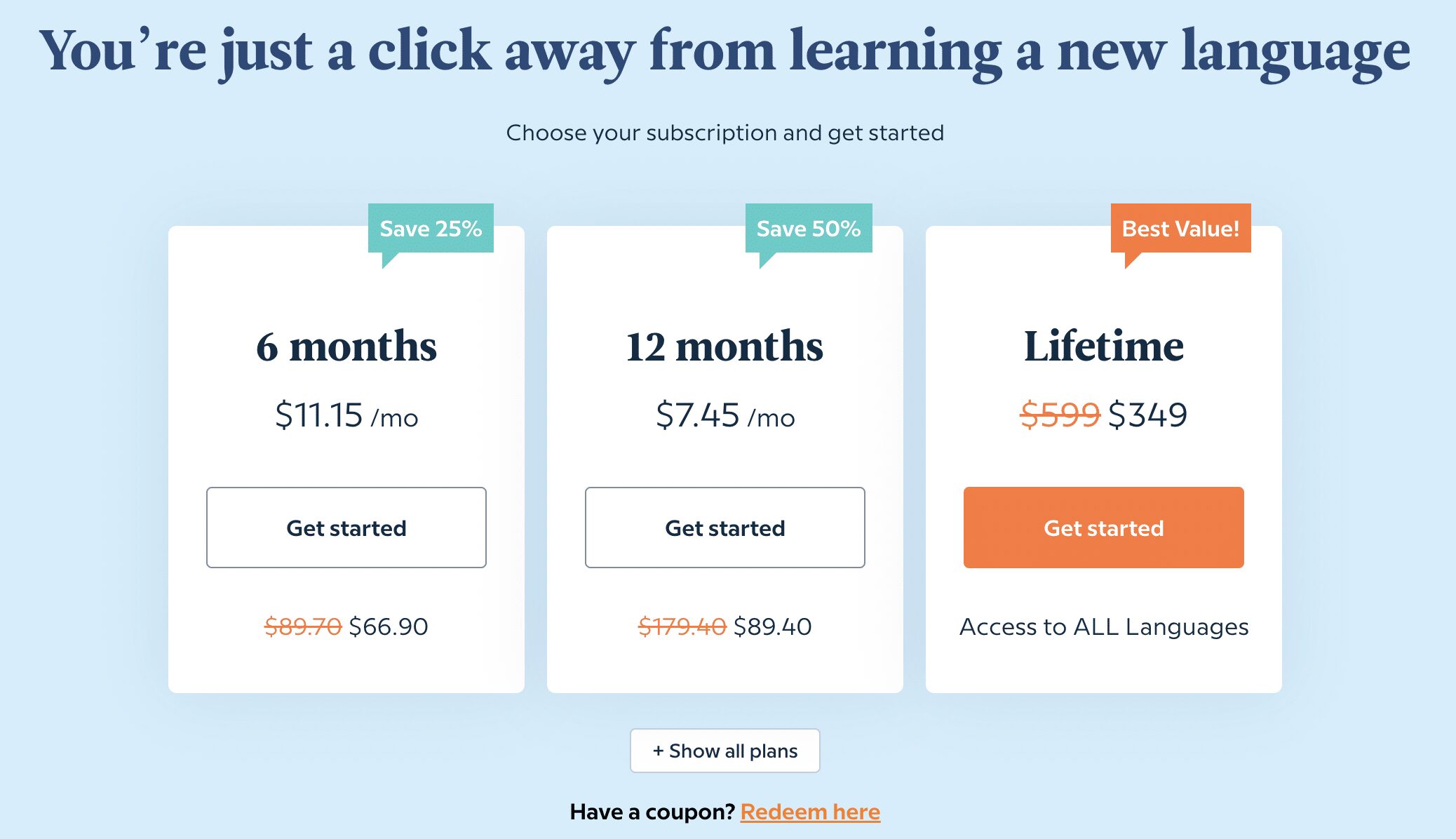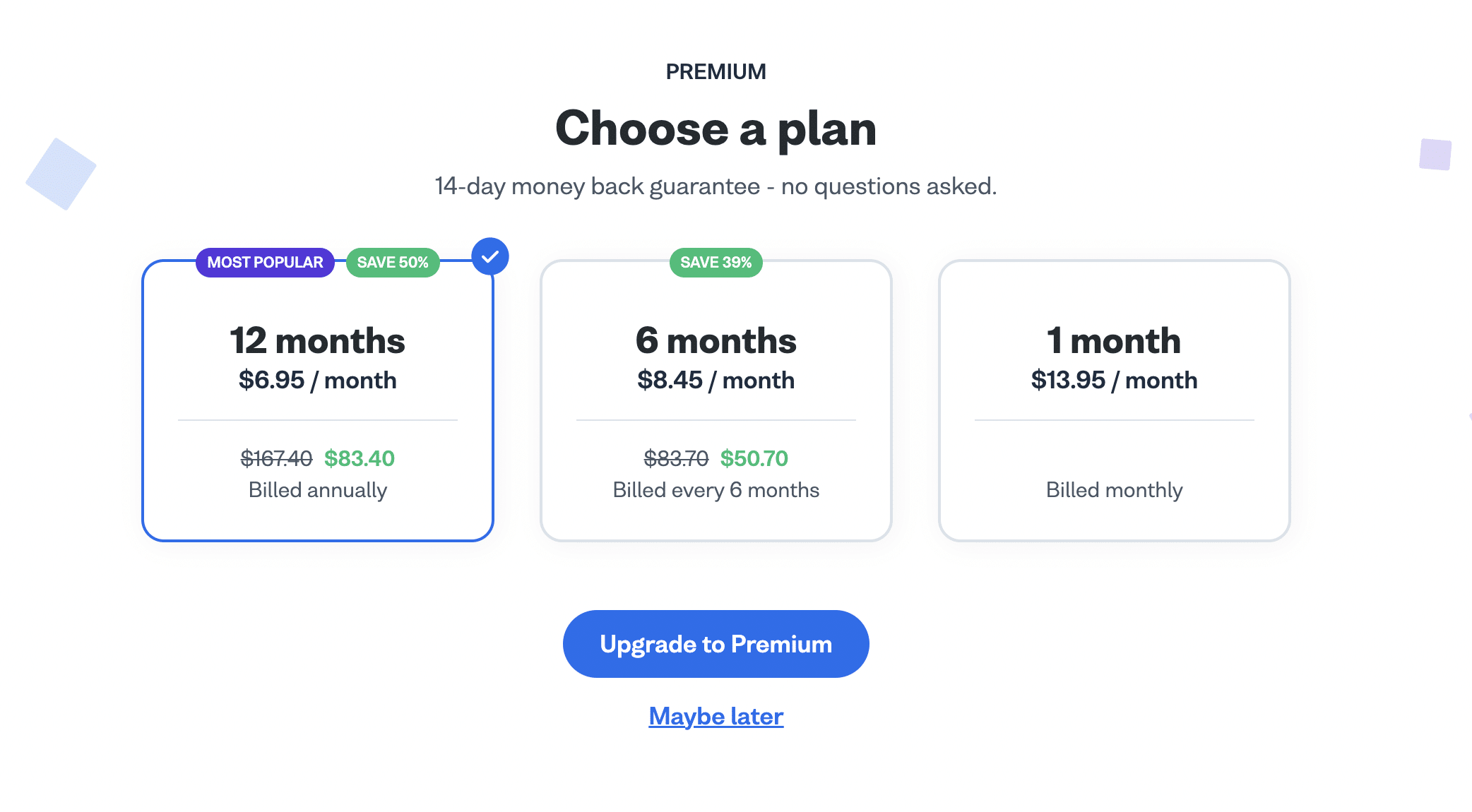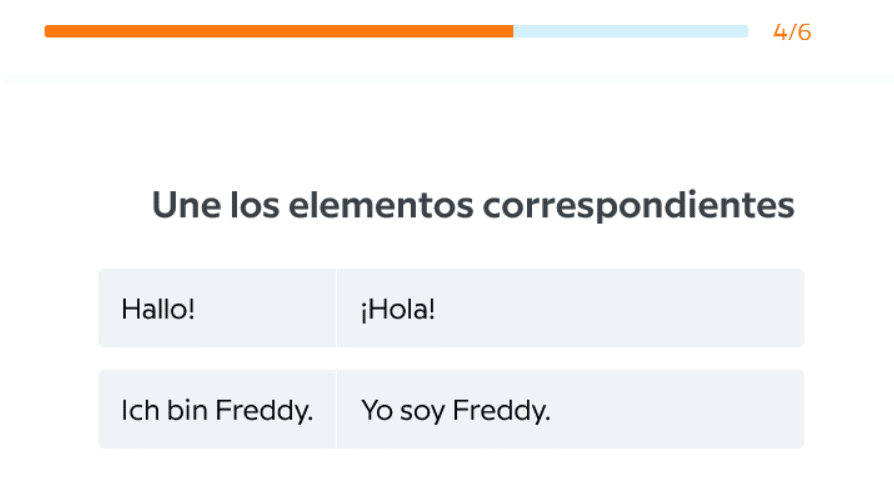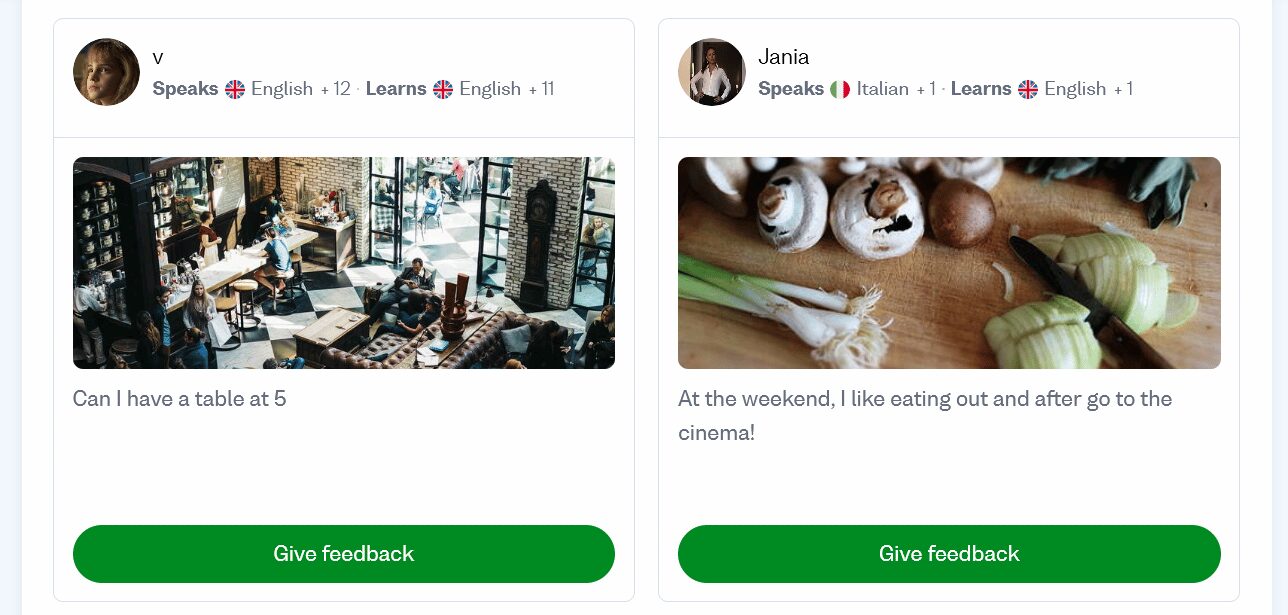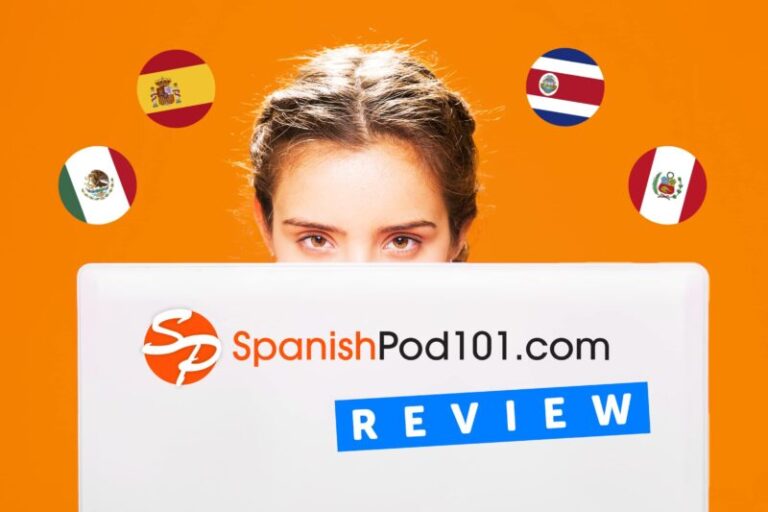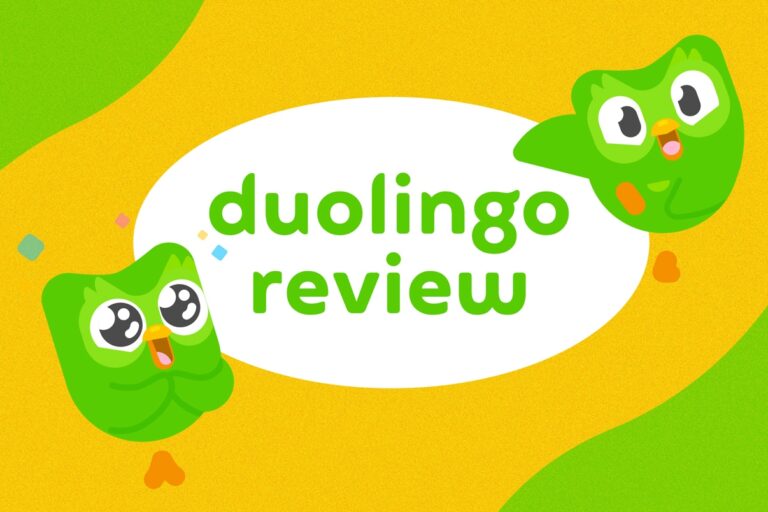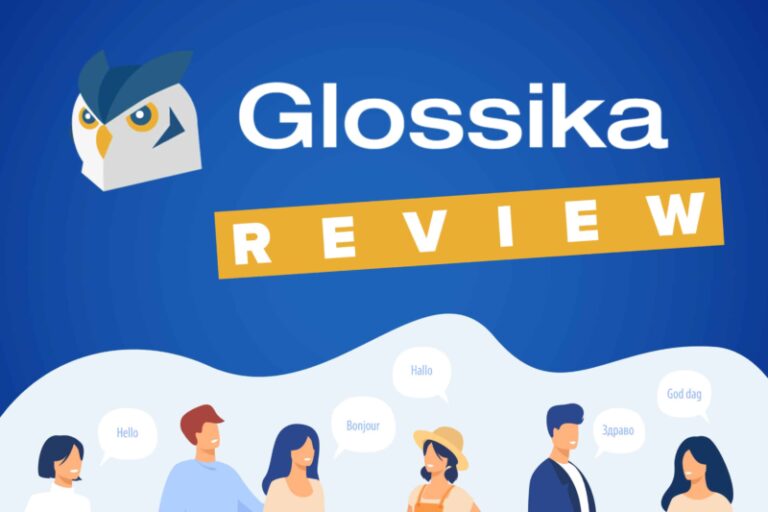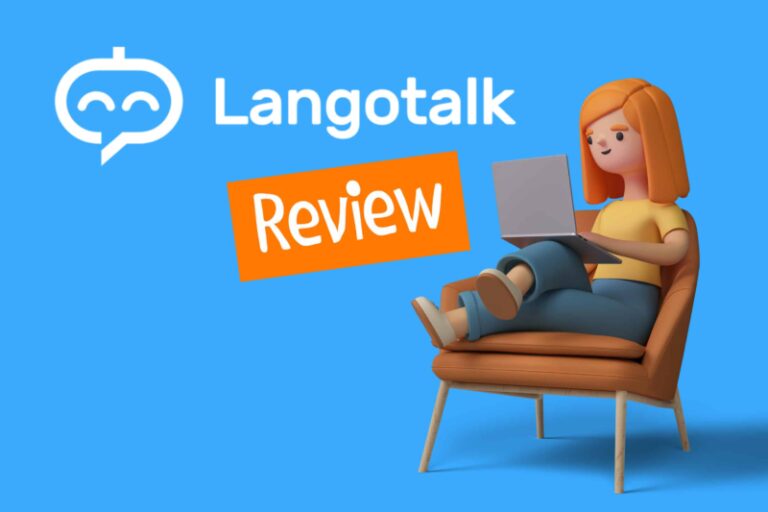Babbel vs Busuu Review: Do You Prefer More Options or More Content? [Updated for 2024]
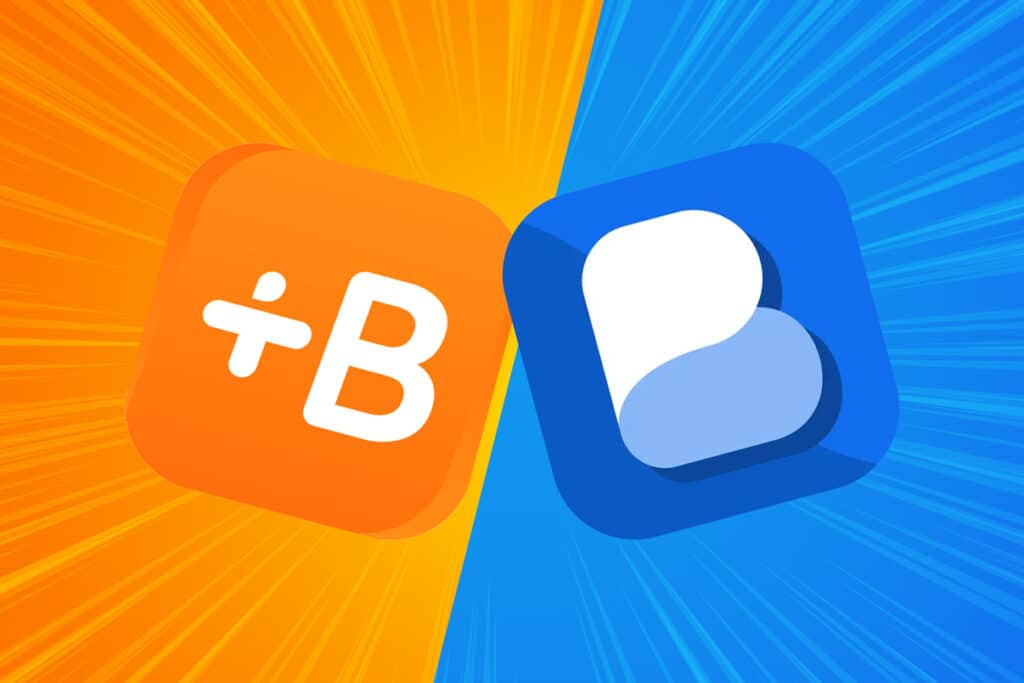
“Wait, which one’s Babbel and which one’s Busuu?” If you’ve asked yourself the same question you’re not the only one, up until last year, I’d only ever known about Babbel. But ever since I learned about Busuu, I mix up these two platforms all the time.
Both language learning apps have their strengths and weaknesses, but Babbel is better for beginners and those who prefer a structured approach, while Busuu is better for intermediate learners and those who want a more social learning experience.
I’ve gone ahead and put these two programs side by side to make it easier for you to distinguish between the two of them.
| Babbel | Busuu | |
|---|---|---|
| Languages | 14 (mostly European) | 12 (more global variety) |
| Levels | Some go up to CEFR C1 | Some go up to CEFR B2 |
| Learning Paths | Open-ended | Linear |
| Free Trial | First lesson of every course is free | Free but limited access to one language 14-day trial for premium memberships |
| Live Tutoring Sessions | Unlimited lessons within specific timeframes | Based on a set number of lessons per month |
| Practice with Natives | Available through Babbel Live sessions | Busuu Community language exchange Busuu Live sessions |
| Certificates | CEFR Certificates only available for English | CEFR Certificates available for several languages |
| Podcasts | Variety of podcasts for many languages | Only one Spanish language and culture podcast |
When it comes to Babbel vs. Busuu, which one’s best for you? Read on to find out!
Download: This blog post is available as a convenient and portable PDF that you can take anywhere. Click here to get a copy. (Download)
What Are Babbel and Busuu?
Babbel: Online School Curriculum Taught in Your Native Tongue
Babbel is a German company based in Munich. There are several layers of meaning behind the name, the main one being a pun on the Tower of Babel. In German, babble and babbel are used interchangeably for the imperative form of babbeln meaning “to babble,” making the name also a homophone in English.
Babbel currently offers the following 14 languages: Spanish, French, German, Italian, Portuguese (Brazilian), Polish, Russian, Dutch, Turkish, Danish, Norwegian, Swedish, Indonesian and English.
As for the display languages or languages of instruction, you have seven options: English, German, Italian, Portuguese (Brazilian), Polish, Spanish and Swedish.
For popular languages such as Spanish and French, advanced courses are available and correspond to the CEFR levels B2 and C1. Meanwhile, languages like Indonesian only have beginner courses.
Each language has its own learning paths to cater to a variety of language learners, from total beginners to business learners. Spanish learners also have access to a course on Mexican Spanish. There are even courses dedicated to the fun stuff, like colloquialisms, idioms and tongue-twisters.
Busuu: Learning Through Self-study and Community Language Exchange
Busuu is a British company headquartered in London. The name is actually an endangered language of Cameroon that was spoken only by eight people back in the ’80s. Thus, the platform not only encourages you to learn a new language, but it also encourages you to explore the lesser-known languages of the world such as Busuu.
You can learn these 12 languages with Busuu: English, Spanish, French, German, Italian, Portuguese, Chinese, Japanese, Polish, Turkish, Russian and Arabic.
You can watch a video that Teddy, a polyglot who loves language learning, put together talking about the good, the bad and the ugly of using Busuu.
You can learn up to CEFR B2 level for half of the languages.
As for the content, lessons are based on conversational scenarios, followed by vocabulary and grammar practice, pronunciation exercises and interactive quizzes. There’s also a community feature so that learners can benefit from language exchange.
How Do Babbel and Busuu Work?
How Babbel Works
You’ll be asked to take a placement test to help you figure out your starting point. The result is merely a suggestion, and you can start at a level above or below, whatever you feel is more appropriate for you.
When tackling new words, lessons begin with word-picture associations. Once you get the hang of the vocab, you’re given exercises where you need to use them in sentences. These exercises include matching games, pronunciation practice with speech recognition, quizzes and review sessions. There are also audio lessons with native speaker audio thrown in the mix.
Expect to spend half an hour or so per lesson.
As you move on to new words and lessons, you’ll get daily reminders of previous words learned for reinforcement.
For the most part, Babbel relies on AI technology for practicing the four language skills, but there are other opportunities outside of the main Babbel curriculum for additional practice.
Firstly, real native speaker practice is available through a Babbel Live subscription. Babbel Live subscribers get unlimited group classes that are each an hour long.
For extra listening practice, Babbel has a ton of podcasts for select languages.
As for official certification, Babbel has partnered with Cambridge so that you can receive certificates for up to the B2 level of English.
How Busuu Works
In contrast to Babbel, the course content is more linear, with everything grouped into CEFR levels so you can see how topics flow naturally. To see where you fit, you’ll need to take a placement test, though you have the freedom to move up or down as you please.
You’ll also get a personalized study schedule, answering questions about your target level and study habits. From there, you’ll get a prediction of when you’ll reach your goal.
Like Babbel, Busuu uses a series of auditory and visual stimuli to teach all four language skills.
Beginner lessons are broken down into three parts or mini-lessons. The first part introduces new words, the second demonstrates their sentence usage and asks you to create sentences out of them, while the last mini-lesson is a multiple-choice quiz or writing exercise.
As you progress, lessons are based on dialogues between native speakers. The corresponding exercises will test your reading and listening comprehension, involving activities such as fill-in-the-blank, true or false, etc.
If you choose to learn English, French, German, Italian, Spanish or Portuguese with Busuu, you can also receive CEFR certificates for A1 to B2 levels, made possible through the McGraw-Hill Education partnership. For these certificates, you’ll be tested on dialogue, comprehension and productive skills.
Social practice within the Busuu community is highly encouraged, but if you want help from a professional, you can sign up for group lessons through Busuu Live. Lessons are teacher-led 45-minute sessions with up to five learners.
Babbel vs Busuu: Cost
How Much Does Babbel Cost?
Rather than being based on a time constraint, Babbel gives the first lesson of each course for free to help you get a feel of your level and goals. Essentially, you have a ton of lessons you can try before you buy. Everything after the first lesson can be accessed after paying a membership fee.
Babbel Live is also a separate subscription and pricier since you’ll be learning with a tutor in small group classes. If you sign up for Babbel Live, you’ll automatically get access to all Babbel content. So there’s no need to pay for Babbel Live and the regular Babbel subscription.
Regular membership gives you access to one language and can be renewed every 6 months ($11.15/month), annually ($7.45/month), semi-annually or you can sign up for a Babbel Complete subscription for $349 if you want unlimited access across all languages.
There’s also a 20-day money-back guarantee if you’re not satisfied with the product.
How Much Does Busuu Cost?
Busuu offers free and paid options for users, as well as a 14-day trial for premium subscriptions.
If you sign up for the free plan, you can access the flashcard system and exercises of one language. It’s not much, but it helps with language practice. You’ll also get the first set of lessons for free.
For the rest of the lessons, quizzes and advanced grammar practice, you’ll need to sign up for one of the premium memberships. The Premium Plan is for one language, while Premium Plus is for all 12 languages. You can choose to be billed monthly $13.95), every 6 months ($8.45/month) or annually ($6.95/month).
For Busuu Live, prices are based on a set number of lessons per month. You can sign up for two ($26), four ($50) or eight lessons ($84) in a month. The Busuu Live free trial is seven days long and you can try out as many lessons as you like.
Busuu has a 14-day money-back guarantee if you aren’t happy with the program.
Babbel vs. Busuu: Is One Actually Better Than the Other?
Honestly, both programs are remarkable in their own rights. Then again, the quality will depend on your budget and target language.
Where Babbel Wins
Despite the language selection being Eurocentric—even more so with the display languages—Babbel excels with its advancement opportunities. You don’t have to be a complete beginner in your target language to actually benefit from Babbel.
The fact that you can change the display language is another win for Babbel. With all of us coming from different cultural backgrounds, there isn’t a one-size-fits-all solution for learning a new language. When learning is tailored to your mother tongue, explanations are given in ways you can relate to, making it easier to forge connections between your L1 and L2. This is cultural integration done right.
Babbel Live works best for those who really enjoy the online classroom experience and wouldn’t mind paying extra for classes. But even those with smaller budgets can sign up for just the Babbel app and look for tutoring elsewhere.
Even though Babbel is good for those with more specific goals—such as those who need to learn anything industry-related like business English—the program also works for those who are just learning for fun. With so many courses under each language, you can simply learn according to what interests you the most.
Babbel is also suited for native speakers of English, German, Italian, Portuguese (Brazilian), Polish, Spanish and Swedish, which, to reiterate, are the display languages available on the platform.
Where Busuu Wins
Busuu may have slightly fewer language offerings than Babbel, but Busuu is more well-rounded compared to Babbel, catering to more global languages such as Arabic and Chinese.
To successfully learn with Busuu, cultural exchange is essential, which is true for learning a new language, in general.
By actively communicating with the Busuu community, you get advice straight from the experts. If you want to learn how to speak like a native, you have to go beyond the lessons and find out how your target language is spoken in real life. You’ll also encounter different dialects in the Busuu community.
CEFR certificates are available for six languages, which comes in handy for those who need them for higher education or career advancement.
With options for free and paid plans, Busuu is more accessible to the masses. And just for a small fee, real-world practice is at your fingertips.
Other than learners with smaller budgets, Busuu is best suited for independent, motivated learners who can and will stick to a stricter schedule. It’s not that Busuu doesn’t have any room for flexibility, but Busuu does operate on a study plan to help you work towards your goals.
You can watch a video where John from the Test Prep Insight team covers his updated comparison of the language apps from Babbel vs Bussu:
If I Had to Pick One…
I’d choose Busuu. Even though instruction is in English and the courses can only get you to B2 level.
I think that Busuu created the perfect blend of structured and social learning. With the help of the Busuu community, you have access to real-world practice and immediate feedback. Learning is much less isolated this way.
Although you might not get as far in fluency with Busuu compared to Babbel, I really like that you’re held accountable to practice what you learn.
At the end of the day, you can sign up for the most expensive language programs, but none of them will pay off unless you communicate with native speakers. This helps you build good habits early on so you’re not just relying on the curriculum to further your progression. Learning a language is about human connection—machine translations can only get you so far.
I know that Babbel Live addresses speaking practice and native speaker feedback, but I like the sense of independence and responsibility that comes with Busuu. You get to be in charge of your progress.
And if you still need more guidance than what the community has to offer, Busuu Live is available, and you only need to commit to a certain number of classes. In contrast, the unlimited classes scheme for Babbel seems quite pricey to me. You’d have to commit to at least a couple of classes per week to get your money’s worth.
Generally, I feel like Babbel prices are only worth it if you’re studying Spanish, French or German. These languages contain the greatest variety of learning paths, so there’s tons more content to learn from. The curriculum is limited for Turkish and Indonesian, in comparison, yet you still have to pay the same price as you would for the more popular languages.
Busuu is also a great alternative to other language exchange apps that are often treated as dating apps.
Where Babbel and Busuu Can Improve
With the emphasis on grammar, Babbel and Busuu lessons can feel a little repetitive and boring for learners who crave variety in their study habits.
And with grammar being a hotly debated topic in terms of learning a new language, it might not be a bad idea to supplement both platforms with a way to learn with authentic content like FluentU.
With FluentU, you hear languages in real-world contexts—the way that native speakers actually use them. Just a quick look will give you an idea of the variety of FluentU videos on offer:
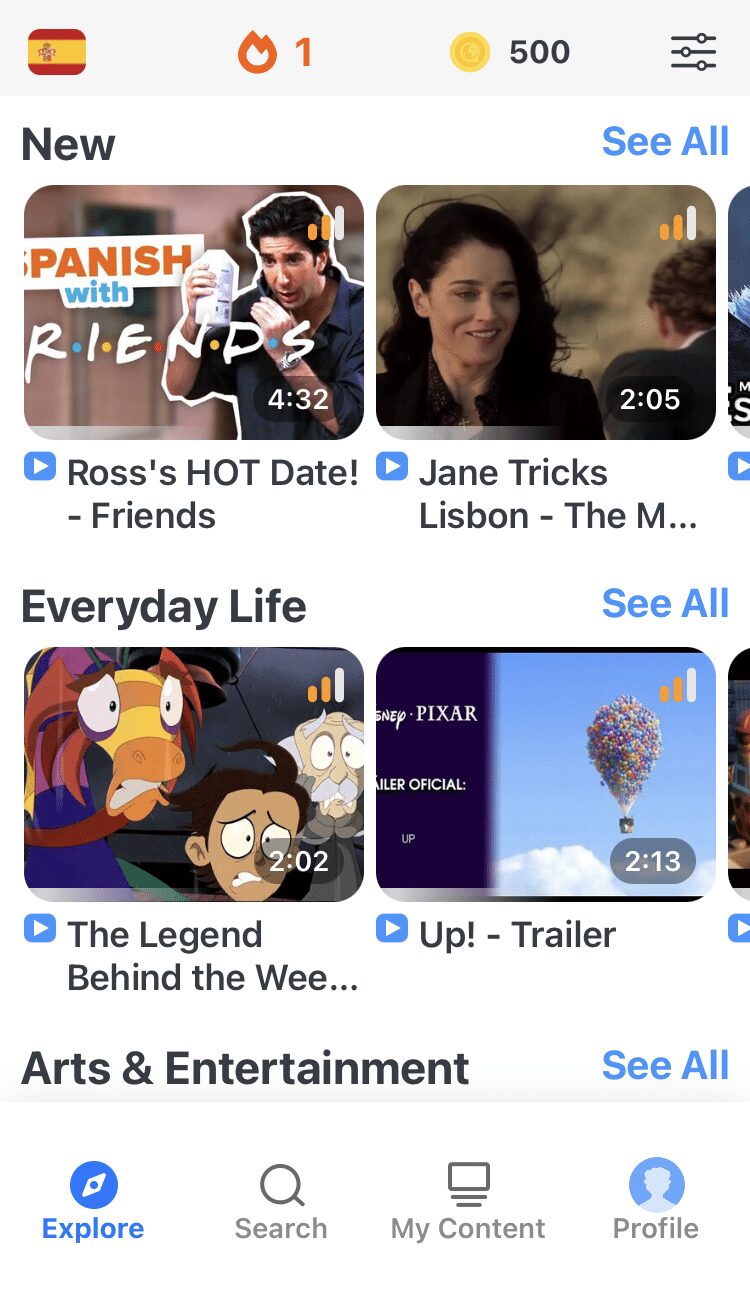
FluentU really takes the grunt work out of learning languages, leaving you with nothing but engaging, effective and efficient learning. It’s already hand-picked the best videos for you and organized them by level and topic. All you have to do is choose any video that strikes your fancy to get started!
Each word in the interactive captions comes with a definition, audio, image, example sentences and more.
Access a complete interactive transcript of every video under the Dialogue tab, and easily review words and phrases from the video under Vocab.
You can use FluentU’s unique adaptive quizzes to learn the vocabulary and phrases from the video through fun questions and exercises. Just swipe left or right to see more examples of the word you're studying.
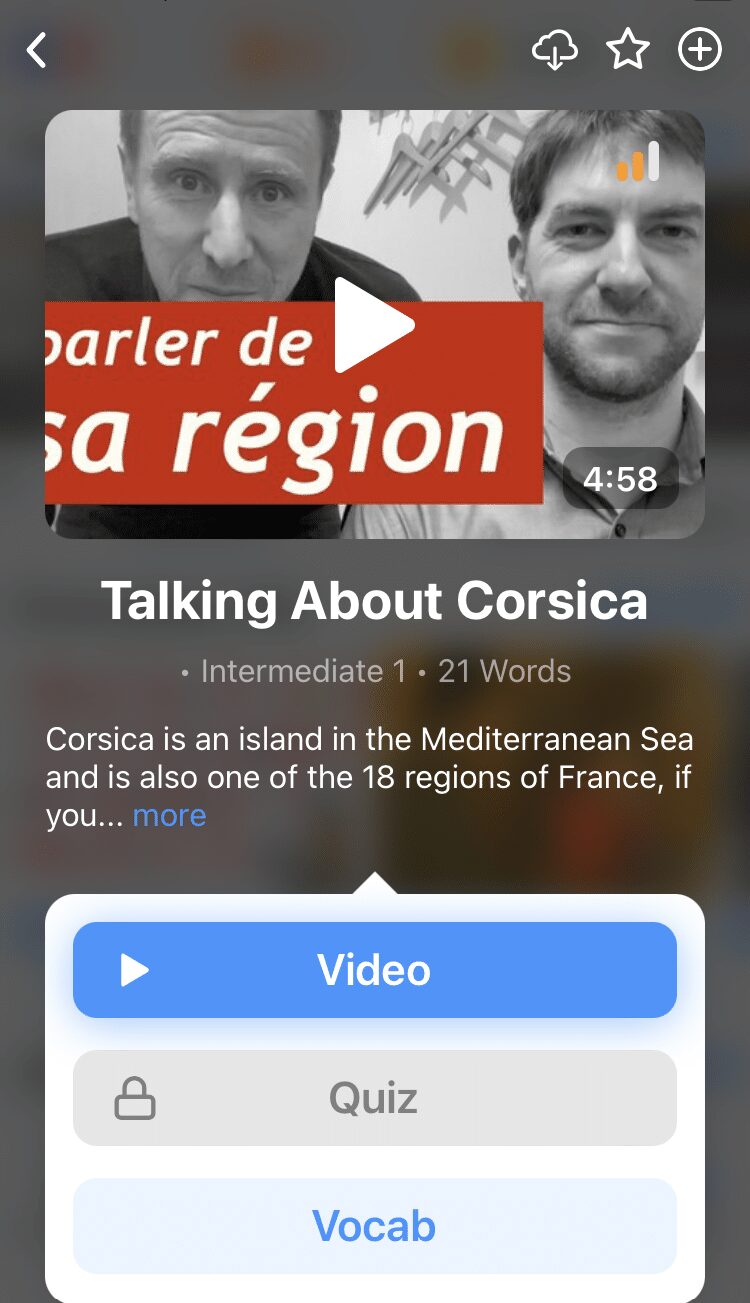
The program even keeps track of what you’re learning and tells you exactly when it’s time for review, giving you a 100% personalized experience.
Start using the FluentU website on your computer or tablet or, better yet, download the FluentU app from the iTunes or Google Play store. Click here to take advantage of our current sale! (Expires at the end of this month.)
You can also reinforce your grammar learning on Babbel and Busuu with other authentic content, depending on which skill you want to work on. For example, you can use a program like LingQ to hone your reading skills (and further reinforce vocabulary) through real content in your target language.
However you do it, if you want to get the most from your learning with Babbel and Busuu, it’s essential that you pair them with some additional, authentic context.
As similar as they are, Babbel and Busuu are also very different. Hopefully, with this comparison, you have all the information you need to see which platform is best suited for your needs.
And if not, you can always check out the free lessons and trials to see for yourself!
